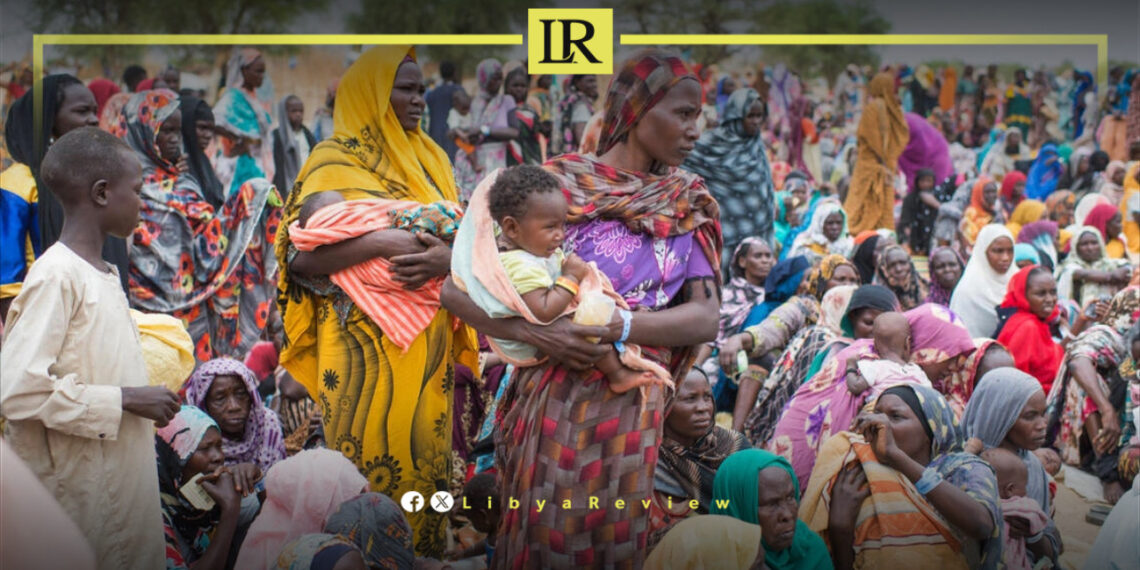The United Nations High Commissioner for Refugees (UNHCR) announced that more than 100,000 Sudanese refugees have fled to Libya since April 2023, following the outbreak of conflict in Sudan.
In a statement released on Sunday, the UNHCR reported that over 29,000 individuals have been registered with the agency since the conflict began, bringing the total number of registered Sudanese refugees in Libya to more than 48,000.
The UNHCR further noted that approximately 65,000 Sudanese refugees have entered Libya through the southeastern city of Kufra alone, with 300-400 new arrivals each day. The humanitarian needs of these refugees are growing rapidly, particularly in essential areas such as healthcare, water, sanitation, food, shelter, and financial assistance.
Local authorities in Libya have provided significant support to the refugees, offering public health services and access to education. However, the UNHCR warned that as many of the Sudanese refugees move towards Libya’s coastal cities, the need for specialized protection, particularly for women-led households, is becoming increasingly urgent.
The mass arrival of Sudanese refugees into Libya follows the violent conflict that erupted in Sudan in April 2023, primarily between the Sudanese Armed Forces and the paramilitary Rapid Support Forces. The conflict has devastated large parts of Sudan, displacing millions and pushing many to seek refuge in neighboring countries, including Libya.
Although Libya is still recovering from its own internal conflict, its proximity to Sudan and porous southern borders have made it one of the more accessible destinations for fleeing Sudanese civilians. However, the refugee influx has placed considerable pressure on Libya’s infrastructure and resources, which are already stretched thin.
While the UNHCR and local authorities are working to provide essential services to the refugees, the sheer scale of the crisis is overwhelming. The continuous flow of refugees, particularly through Kufra, presents ongoing challenges for Libyan officials and international aid agencies. The most pressing needs include medical care, sanitation facilities, clean water, food, and safe shelter.
Women and children are among the most vulnerable groups, with many families arriving in Libya without adequate support. As refugees move northward from the desert areas into coastal cities, where local populations are already struggling with economic challenges and internal displacement, the strain on available resources is intensifying.


